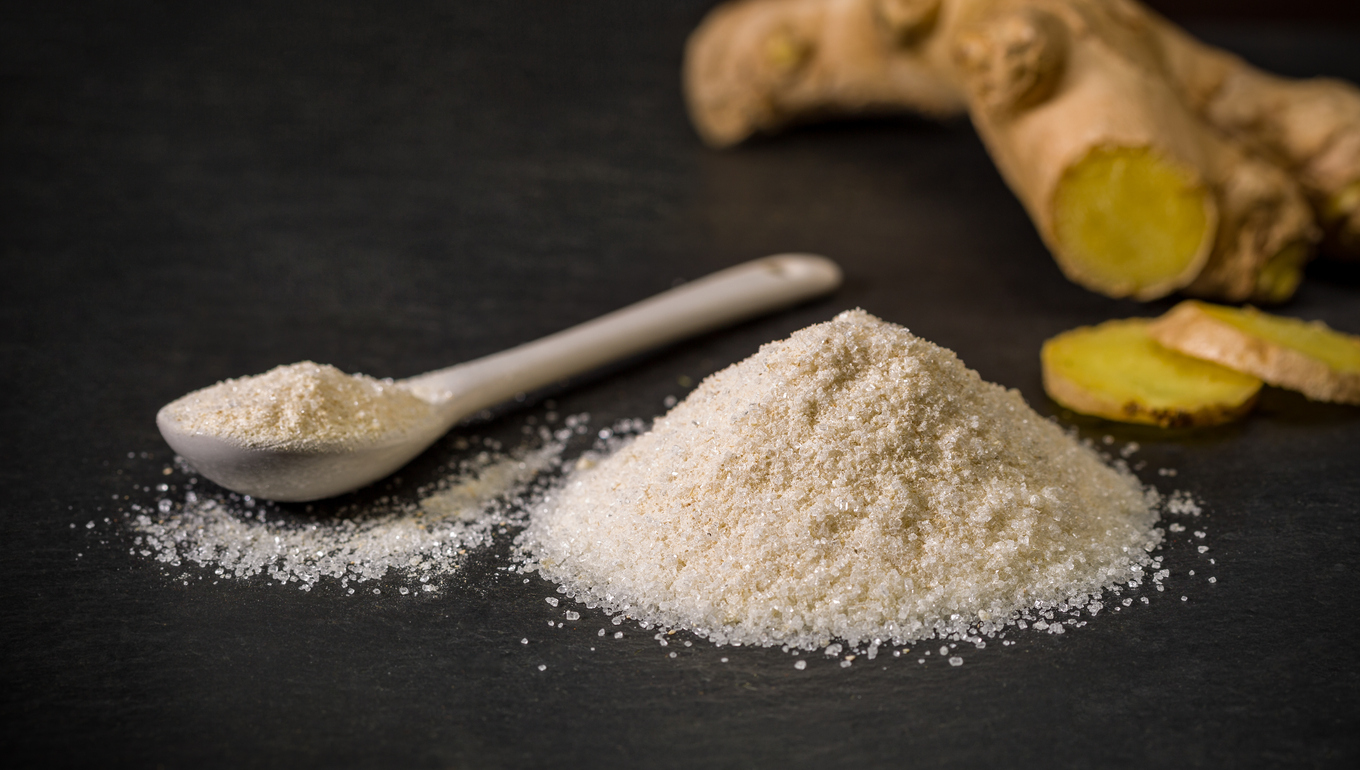From Field to Pharmacy: The Journey of Pharmaceutical Crops in Nigeria with Wigmore Trading
From Field to Pharmacy: The Journey of Pharmaceutical Crops in Nigeria with Wigmore Trading
In the bustling fields of Nigeria, a remarkable transformation is taking place. From humble seeds to life-saving medicine, pharmaceutical crops are embarking on an extraordinary journey that not only supports local communities but also plays an integral role in the global healthcare industry. Join us as we delve into this captivating tale with Wigmore Trading, a leading player in Nigeria’s agricultural landscape. Discover how these vital crops navigate their way from field to pharmacy, bringing hope and healing to countless lives along the way. Prepare to be amazed by the intricate dance between nature and science that unfolds in each step of this awe-inspiring process!
Introduction to Wigmore Trading and their mission
Introduction to Wigmore Trading and their mission
Wigmore Trading is a leading supplier of pharmaceutical crops in Nigeria, dedicated to providing high-quality products sourced directly from local farmers. With over 30 years of experience in the industry, Wigmore Trading has established itself as a trusted partner for pharmaceutical companies and pharmacies across the country.
The company’s mission is to bridge the gap between farmers and pharmaceutical companies, creating a sustainable supply chain that benefits both parties. This not only ensures a consistent supply of high-quality crops but also empowers local farmers by providing them with a fair market for their produce.
At Wigmore Trading, we believe in promoting responsible farming practices that not only yield better-quality crops but also protect the environment. We work closely with our network of farmers to educate them on sustainable farming techniques that minimize the use of harmful chemicals and promote biodiversity.
Our commitment to quality starts at the source – the farms. We carefully select our partner farms based on their adherence to Good Agricultural Practices (GAP) and ensure that they follow strict guidelines for cultivation, harvesting, and post-harvest handling. This guarantees that our customers receive fresh, disease-free crops with maximum potency and minimal contamination.
As part of our mission to support local communities, we prioritize working with small-scale farmers who may not have access to large markets or resources. By partnering with these farmers, we aim to uplift rural economies and improve livelihoods while maintaining transparency and fair trade practices throughout our supply chain.
In addition to sourcing and supplying pharmaceutical crops, Wigmore Trading also offers technical assistance to farmers through training programs on crop management techniques, pest control methods, and quality control measures. This enables them to continuously improve their farming practices and meet international standards for agricultural produce.
Our efforts are guided by the belief that everyone should have access to safe and effective medication at an affordable price point. Therefore, we strive towards keeping costs low without compromising on quality so that our clients can make essential medicines accessible to their patients.
Wigmore Trading is dedicated to promoting sustainable agriculture and supporting local communities while providing pharmaceutical companies with high-quality crops. Our mission is fueled by the desire to contribute towards a healthier and more equitable society, one crop at a time.
The history and importance of pharmaceutical crops in Nigeria
Pharmaceutical crops have played a significant role in the history and development of Nigeria’s healthcare system. These are plants that are specifically grown and harvested for their medicinal properties, which have been an integral part of traditional medicine practices in Nigeria for centuries.
The use of pharmaceutical crops dates back to ancient times when indigenous communities relied on these plants for treating various ailments. The knowledge of their healing properties was passed down from generation to generation, and it became an essential part of Nigerian culture and tradition.
One of the earliest recorded uses of pharmaceutical crops in Nigeria is the use of bitter kola (Garcinia kola) by traditional healers to treat respiratory illnesses such as asthma and bronchitis. Bitter kola also has antimicrobial properties that make it effective against infections caused by bacteria, viruses, and fungi. It is still popularly used today as a natural remedy for various health conditions.
Another vital pharmaceutical crop in Nigerian history is Neem (Azadirachta indica), commonly known as “the village pharmacy.” Every part of this plant has medicinal value, making it highly versatile in treating multiple health issues such as skin diseases, fever, diabetes, and even cancer. It was also used traditionally as a natural insect repellent and pesticide.
In the 20th century, with the advent of modern medicine, there was a decline in the use of traditional medicines. However, with increasing concerns about synthetic drugs’ side effects and rising demand for organic products globally, there has been a renewed interest in pharmaceutical crops in recent years.
Today, Nigeria is one of the leading producers and exporters of several high-quality pharmaceutical crops globally. Some notable examples include ginger (Zingiber officinale), turmeric (Curcuma longa), moringa (Moringa oleifera), African star apple or Agbalumo (Chrysophyllum albidum), among others.
The cultivation and harvesting of these crops have also created employment opportunities for many Nigerians, especially in rural areas. It has also contributed significantly to the country’s economy, with pharmaceutical crop exports generating millions of dollars annually.
Moreover, the importance of pharmaceutical crops goes beyond their economic benefits. These plants provide a sustainable and affordable source of medicine for millions of Nigerians, particularly those living in remote communities with limited access to modern healthcare facilities.
The history and importance of pharmaceutical crops in Nigeria cannot be overstated. They are deeply rooted in Nigerian culture and continue to play a critical role in promoting the health and well-being of its people. With increased investment and support from both government and private sectors, Nigeria’s pharmaceutical crop industry is poised for even more significant growth and impact in the future.
The process of growing and harvesting pharmaceutical crops in Nigeria
The production of pharmaceutical crops in Nigeria is a vital process that involves various stages, from selecting suitable land and planting the seeds to harvesting and processing the final products. In this section, we will take a closer look at the step-by-step process of growing and harvesting pharmaceutical crops in Nigeria.
1. Land Selection and Preparation:
The first step in growing pharmaceutical crops is to select a suitable piece of land for cultivation. The selected land should have good soil fertility, adequate water supply, and proper drainage systems. Once the land is selected, it needs to be prepared by plowing, harrowing, and leveling to create a suitable environment for planting.
2. Seed Selection and Planting:
The next step is to select high-quality seeds of the desired pharmaceutical crop variety from reputable sources like Wigmore Trading. These seeds are then planted using different methods depending on the type of crop – some can be directly sown while others are transplanted.
3. Irrigation and Fertilization:
Pharmaceutical crops require regular watering for optimal growth. In areas with inadequate rainfall, irrigation systems are set up to provide water consistently throughout the growing season. Additionally, fertilizers are applied at specific intervals to provide essential nutrients for healthy plant growth.
4. Pest Control:
Pests can cause significant damage to pharmaceutical crops if not controlled effectively. To ensure that the crops remain pest-free, farmers use various methods such as biological control (using natural predators), cultural control (crop rotation), or chemical control (use of pesticides).
5. Harvesting:
Once the plants have reached maturity, they are ready for harvesting. This stage requires careful planning as harvesting too early or too late can affect the quality of the final product negatively. Depending on the type of crop, harvesting may involve manual labor or machine-assisted techniques.
6. Processing:
After harvesting comes processing – an essential stage in ensuring that pharmaceutical crops reach their full potential as medicinal products. This step involves cleaning, sorting, and drying the harvested plants to remove impurities and moisture. The processed crops are then packaged and stored in climate-controlled facilities.
7. Quality Control:
To ensure that pharmaceutical crops meet the required standards, rigorous quality control measures are put in place at every stage of production. These include testing for purity, potency, and absence of contaminants.
Growing and harvesting pharmaceutical crops in Nigeria is a complex process that requires careful planning, dedicated work, and strict adherence to quality standards. Thanks to companies like Wigmore Trading that provide high-quality seeds for cultivation and offer guidance on best farming practices, the production of pharmaceutical crops continues to thrive in Nigeria.
Challenges faced by farmers in the cultivation of pharmaceutical crops
Pharmaceutical crops are an essential part of the healthcare industry, providing raw materials for the production of medicines and other medicinal products. In Nigeria, the cultivation of pharmaceutical crops has been on the rise in recent years, with more and more farmers venturing into this lucrative market. However, like any other agricultural venture, there are challenges that farmers face in the cultivation of these crops.
One of the main challenges faced by farmers is obtaining quality seeds for planting. Pharmaceutical crops require specific varieties that have been bred to contain a high amount of active ingredients needed for medicinal purposes. However, these seeds can be difficult to find and often come at a high cost, making it challenging for small-scale farmers to afford them.
Another challenge is the lack of technical knowledge and expertise in cultivating pharmaceutical crops. Unlike traditional crops like maize or beans, pharmaceutical crops require specialized farming techniques and inputs to achieve maximum yield. Farmers may not have access to proper training or information on how to grow these crops effectively, leading to lower yields and financial losses.
The unreliable weather patterns also pose a significant challenge for farmers growing pharmaceutical crops. These plants are sensitive to changes in temperature and rainfall patterns, which can affect their growth and ultimately their potency. Inconsistent rainfall can lead to poor germination rates or stunted growth, while extreme temperatures can cause wilting or damage to the plants’ active ingredients.
Pests and diseases are another major concern for farmers growing pharmaceutical crops. The use of pesticides is limited due to potential residue contamination that could render the plants unsuitable for medicinal use. As a result, farmers must rely on natural methods such as crop rotation and intercropping with pest-resistant plants, which may not always be effective against pests specific to pharmaceutical crops.
Also worth mentioning is the issue of land availability for growing pharmaceutical crops. With increasing population growth in Nigeria, there is pressure on land resources as more people turn towards agriculture as a means of livelihood. This makes it difficult for farmers to secure large tracts of land needed to cultivate pharmaceutical crops on a commercial scale.
The cultivation of pharmaceutical crops in Nigeria comes with its fair share of challenges. However, with proper support and education from organizations such as Wigmore Trading, these challenges can be overcome. It is crucial for farmers to have access to quality seeds, technical knowledge, and support in dealing with weather patterns and pest control. With effective management and collaboration between all stakeholders involved, the journey of pharmaceutical crops from field to pharmacy can continue to thrive in Nigeria.
Benefits of using locally grown pharmaceutical crops for medicinal purposes
The use of locally grown pharmaceutical crops for medicinal purposes has gained popularity in recent years, and for good reason. Not only does it provide a sustainable and cost-effective solution for producing essential medicines, but it also offers numerous benefits for both the environment and local communities.
One of the main advantages of using locally grown pharmaceutical crops is their high potency and effectiveness. These crops are often grown in their natural habitat, without the use of harmful pesticides or chemicals. As a result, they retain more of their natural properties and active compounds, making them more potent and effective in treating various ailments.
Moreover, since these plants are native to the region, they have adapted to the local climate and soil conditions. This means that they require minimal external inputs such as fertilizers or irrigation, making them easier to cultivate and reducing production costs. This translates to lower prices for consumers who can access quality medicines at affordable prices.
Local cultivation of pharmaceutical crops also has significant environmental benefits. By growing these plants within their natural habitat, there is less risk of introducing invasive species that can harm local ecosystems. In addition, locally grown crops reduce dependence on imported medicines which often come with a large carbon footprint due to transportation costs.
Furthermore, cultivating pharmaceutical crops locally can create economic opportunities for farmers in rural areas. Many small-scale farmers in Nigeria are now turning towards growing medicinal herbs instead of traditional cash crops due to higher demand from pharmaceutical companies. This not only provides an additional source of income but also promotes sustainable farming practices by diversifying agricultural activities.
The reliance on locally grown pharmaceutical crops can also play a crucial role in preserving traditional knowledge and cultural practices surrounding medicinal plant usage. With modern medicine increasingly dominating healthcare systems around the world, there is a risk of losing this valuable knowledge passed down through generations. By encouraging the cultivation and use of these traditional plants, we can preserve cultural heritage while promoting sustainable healthcare practices.
Investing in locally grown pharmaceutical crops offers numerous benefits, from increased potency and effectiveness of medicines to promoting sustainable farming practices and preserving traditional knowledge. By supporting local farmers and businesses, we can create a more sustainable and accessible healthcare system for all.
Success stories from farmers working with Wigmore Trading
Wigmore Trading has been working closely with farmers in Nigeria for years, and the results have been nothing short of remarkable. Our partnership with these hardworking individuals has not only helped to boost their income and livelihoods, but it has also contributed significantly to the growth of the pharmaceutical industry in Nigeria.
One such success story is that of Mrs. Abimbola Adeoye, a cassava farmer from Oyo state. Before partnering with Wigmore Trading, Mrs. Adeoye struggled to sell her cassava crops due to lack of market access and low prices offered by middlemen. However, after attending one of our agro-input seminars, she learned about using high-quality fertilizers and seeds to increase her yield. With the help of our trained agricultural experts, Mrs. Adeoye was able to improve her crop production significantly.
Furthermore, Wigmore Trading connected Mrs. Adeoye with pharmaceutical companies looking for a reliable supplier of cassava for their production process. This partnership has not only provided Mrs. Adeoye with a steady source of income but has also opened up new opportunities for her to expand her farming business.
Another inspiring success story is that of Mr. Yakubu Musa, a ginger farmer from Kano state who had been struggling with low yields and pest infestation on his farm for many years. After attending one of Wigmore Trading’s training programs on modern farming techniques and pest management strategies, Mr.Musa was able to implement these practices on his farm successfully.
As a result, his ginger harvest increased significantly by over 40%, leading to higher profits for him and his family. In addition, through our network and market connections, Mr.Musa was able to secure contracts with several pharmaceutical companies seeking high-quality organic ginger for medicinal purposes.
These are just two examples out of many success stories we have witnessed from farmers working with Wigmore Trading across different states in Nigeria. By providing them with access to modern farming techniques, quality inputs, and market linkages, we have been able to help these farmers improve their yields and income. This has not only transformed the lives of these individuals but also contributed to the overall development of rural communities.
Our partnership with farmers in Nigeria is a testament to our commitment to promoting sustainable agriculture and supporting local communities. We are proud of the success stories from these hardworking farmers and remain dedicated to empowering more individuals through our initiatives in the agriculture sector.
Future plans and innovations for the cultivation of pharmaceutical crops in Nigeria
As the pharmaceutical industry continues to grow and evolve, so does the demand for high-quality medicinal plants and herbs. In Nigeria, Wigmore Trading has been a pioneer in cultivating and supplying pharmaceutical crops to meet this demand. With their commitment to sustainable farming practices and dedication to producing top-notch products, they have become a leading supplier in the country.
Looking towards the future, Wigmore Trading has plans to expand their cultivation of pharmaceutical crops in Nigeria by incorporating innovative techniques and technologies. One of their primary focuses is on enhancing crop yields through precision farming methods. This involves using remote sensing technology, such as drones or satellites, to gather data on soil moisture levels, nutrient deficiencies, and crop health. This information can then be used to create customized treatment plans for each crop, resulting in increased productivity and higher quality harvests.
In addition to precision farming techniques, Wigmore Trading is also looking into implementing vertical farming methods for certain crops. This method involves growing plants in vertically stacked layers instead of traditional horizontal rows. As space becomes increasingly limited in urban areas of Nigeria, vertical farming can provide a solution by maximizing land usage while still producing large quantities of crops.
Another area that Wigmore Trading is exploring for future innovations is sustainable packaging solutions. The company recognizes the importance of reducing plastic waste and carbon emissions associated with packaging materials. They are currently researching alternative options such as biodegradable packaging made from plant-based materials.
Wigmore Trading’s commitment to sustainability also extends to water conservation efforts through the use of drip irrigation systems. By providing precise amounts of water directly to plant roots, this method reduces water waste and promotes healthier root growth.
Furthermore, the company aims to increase their range of cultivated pharmaceutical crops by introducing new species that are not commonly found in Nigeria but have proven medicinal benefits globally. This will not only diversify their offerings but also contribute towards improving access to specialized medicines within the country.
Wigmore Trading’s future plans and innovations for cultivating pharmaceutical crops in Nigeria demonstrate their dedication to staying at the forefront of the industry. By incorporating advanced techniques, sustainable practices, and expanding their product range, they are positioning themselves as a leading supplier in the country’s growing pharmaceutical market. As demand for medicinal plants continues to rise, Wigmore Trading is well-equipped to meet these needs with quality products cultivated through innovative methods.
Conclusion: The impact of Wigmore Trading on the pharmaceutical industry in Nigeria.
Conclusion: The Impact of Wigmore Trading on the Pharmaceutical Industry in Nigeria
Wigmore Trading has undoubtedly played a significant role in shaping and impacting the pharmaceutical industry in Nigeria. From its humble beginnings as a small trading company to becoming one of the leading suppliers of pharmaceutical crops, Wigmore Trading has made remarkable contributions to the growth and development of this vital sector.
One of the notable impacts of Wigmore Trading on the pharmaceutical industry can be seen in its efforts towards promoting local production and sourcing of raw materials. Before Wigmore Trading’s entry into the market, many pharmaceutical companies in Nigeria heavily relied on imported raw materials for their drug manufacturing processes. This not only led to high production costs but also made drugs unaffordable for most Nigerians. However, with Wigmore Trading’s focus on locally sourced crops such as ginger, turmeric, moringa, and neem leaves, there has been a significant reduction in production costs for these companies. This has resulted in more affordable drugs for Nigerian consumers while also boosting local agricultural activities.
Furthermore, Wigmore Trading’s commitment to quality control and adherence to international standards has raised the bar for other players in the industry. By ensuring that all their products go through rigorous testing procedures before being supplied to their clients, they have helped improve overall product quality and safety standards within the industry. As a result, Nigerian pharmaceutical products are gaining more recognition globally.
Another crucial impact of Wigmore Trading is its contribution to job creation and economic growth. By partnering with local farmers and cooperatives across various regions in Nigeria, they have provided employment opportunities for thousands of individuals involved in crop cultivation and harvesting activities. This has not only improved their livelihoods but also contributed significantly to reducing unemployment rates in the country.
Moreover, through its corporate social responsibility initiatives like training programs for farmers and donations to healthcare facilities, Wigmore Trading continues to make positive contributions towards improving healthcare access and delivery systems in Nigeria.
The impact of Wigmore Trading on the pharmaceutical industry in Nigeria has been substantial and far-reaching. From promoting local production and sourcing to raising quality standards and contributing to economic growth, Wigmore Trading has proven to be a key player in the journey of pharmaceutical crops in Nigeria. With its continued dedication towards driving positive change within the industry, we can only expect more significant impacts from this remarkable company in the future.








Comments are closed.